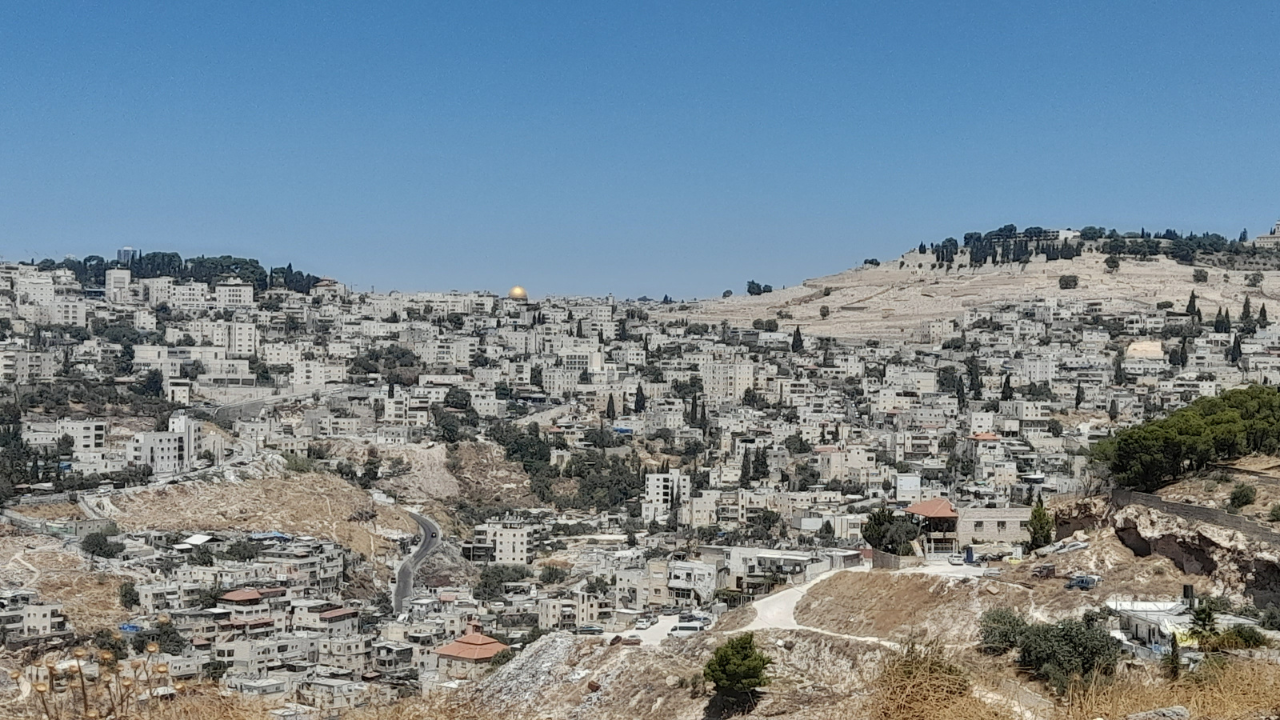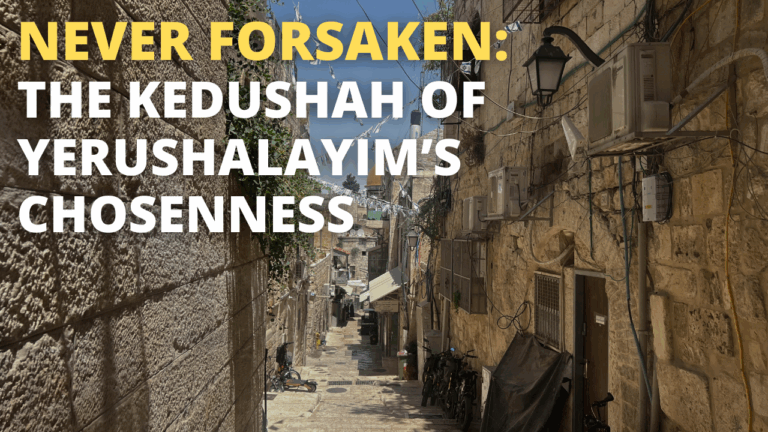A Song From the Abyss: Bnei Korach and the Power of Yerushalayim
As the ground opened to swallow Korach’s rebellious followers, the Torah tells us it tragically included man, woman, and child (Bamidbar 16:32). “How dreadful is machloket!” declares Rashi (ibid 16:27), for Korach’s rebellioncaused the death of even infants, the children of the sinners.
Yet remarkably, the children of one rebel were spared. And not just any rebel; the cheif instigator himself! The Torah tells us that the sons of Korach did not die (Bamidbar 26:11). While sources differ on the details, it seems that Korach’s sons either rejected their father from the outset of his rebellion, or repented at the last moment as the ground split open (see Targum Yonatan and Rashi to Bamidbar 26:11). As the earth gaped open, a narrow pillar emerged beneath them, suspending them above the abyss.
Rebbe Yehudah HaNasi dramatically describes this moment (Yalkut Shemoni, Korach 752): all of Klal Yisrael stares at these three young men as they stand above the yawning void. There is silence. Then, the sons of Korach begin to sing shirah to Hashem. What is the theme of their song?
“שעתיד הקדוש ברוך לבנות ירושלים בנין קבוע שאין לו הפסק – that HaKadosh Baruch Hu will build Jerusalem as a permanent structure, without any end.”
A beautiful prophecy. But entirely irrelevant to their current predicament. Why would they sing about the future glory of Yerushalayim as their family and possessions vanish into the earth?
In truth, Chazal’s portrayal of the Bnei Korach’s obsession with Yerushalayim is deeply rooted in Sefer Tehillim. Generations later, their descendants composed twelve pirkei Tehillim, many of which focus exclusively on Yerushalayim and the Beit HaMikdash. In fact, one could argue that the Bnei Korach speak of Yerushalayim more than David HaMelech himself!
Why draws them so deeply to Yerushalayim?
A striking Midrash offers deeper insight. Pirkei D’Rebbe Eliezer (Perek 10) describes Yonah’s descent into the abyss, swallowed by the giant fish. The fish takes Yonah on a “tour” and shows him the Even Shetiah, the Foundation Stone whose peak rests in the Kodesh HaKadoshim. On the stone, Yonah sees the Bnei Korach desperately praying. The fish informs Yonah that if he too prays now in this auspicious place, his prayers will be answered. Yonah cries out, “Ribbono Shel Olam, You are called ‘He who casts down and lifts up.’ You’ve cast me down, now lift me up! ‘He who brings death and life,’ I have reached death, now revive me!” Hashem responds, and the fish spits Yonah onto dry land.
This Midrash is a deep metaphor for the power of Jerusalem to reverse even the greatest descent. Both Yonah and the Bnei Korach are being “swallowed up” by primordial forces that threaten to drag them permanently down into the שאול – the dark abyss beyond return. As their lives collapse under the weight of their respective mistakes, they desperately seek solid ground, a lifeline that can bring them back up to the surface. Then they find the Even Shetiah, the Foundational Stone from which the world itself was formed. From that spot, creation began: chaos turned into a beautiful, flourishing world.
Yerushalayim becomes their anchor. In Yerushalayim, these holy penitents see the ability to recreate themselves, to reverse the most hopeless situation into a vibrant paradise. From its depths they cry out, and impossibly, they are lifted back into the light.
This context allows us to appreciate the tragic depth of Tehillim 88. The Bnei Korach passionately capture the hopelessness of exile (see Rashi ibid); as Jerusalem lays in ruins, they cry out:
“…my life has reached the grave. I was counted with those who descend into the Pit… You have put me into the lowest pit, into dark places, into depths…You have afflicted me with all Your crashing waves!”
Yerushalayim had once been their lifeline. Now without the holy city holding them afloat, they feel themselves again sinking into the abyss.
This is why every Jew recites this mizmor. Without Yerushalayim and the Even Shetiah, we teeter on the edge of the shadowy depths chas v’shalom. But the Bnei Korach have already shown us the way.Even from the heart of the abyss, they promised that Yerushalayim will be rebuilt – permanently. No matter how far we’ve fallen, she remains the foundation stone from which we can once again rise.



